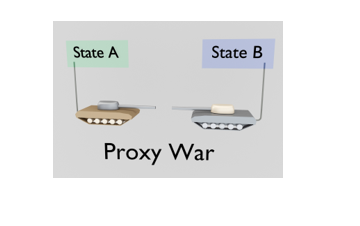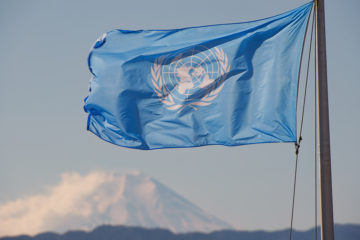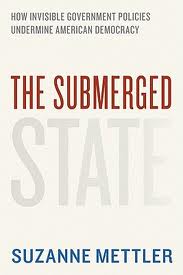
Review of the Routledge Handbook of Proxy Wars (with two DPIR contributions)
DPhil candidate Giuseppe Spatafora summarises the key findings of the recently published Routledge Handbook of Proxy Wars, which aims to present the various facets of the phenomenon. The Handbook contains two contributions by DPIR scholars: one by Spatafora himself on the extent to which the Spanish Civil War presents proxy war characteristics, and one by Dr. Vanessa Meier on quantitative approaches to the study of proxy wars. The phenomenon of proxy wars has existed for centuries, well before what is commonly perceived as its heyday—the Cold War. Albeit more modern, the study of proxy wars is not in its infancy either. The Routledge Handbook of Proxy Wars (2023), edited by Assaf Moghadam, Vladimir Rauta, and Michel Wyss, aims to illustrate …

We Used to Do Big Things – A Review of After the Fall: Being American in the World We’ve Made by Ben Rhodes
Barack Obama’s 2008 campaign undoubtedly inspired a movement of young progressives across America, and few believed in the sprawling idealism more than Ben Rhodes, a young New Yorker who ultimately rose to become Obama’s Deputy National Security Advisor. It is this proximity to power, especially during a historic presidency, that makes Rhodes’ second book, After the Fall: Being American in the World We’ve Made, worth considering. After the Fall centers on an author grappling with a reality—in America and across the world—that has shaken his faith in the “happy democratic endings” he and Obama once held as an ultimate goal. Based on a four-year, cross-continent journey, he explores politics from Russia and Hungary to China and Hong Kong to trace …

Book Review: Richard Caplan’s “Measuring Peace: Principles, Practices and Politics”
In Measuring Peace, Professor Richard Caplan of the University of Oxford has written an insightful guide for students and practitioners of peace. The book will help those who want to understand the fundamental principles and existing practices of how to assess peace while at the same time outlining some critical political constraints. Caplan provides a succinct and clear analysis of key approaches to peace measurements, their weaknesses and ways to move forward. Due to its accessibility and policy relevance, the book also stands out among other publications that have sought to evaluate and grapple with the question of how to judge the quality of existing peace. The key aim of the book is to give peacebuilders a ‘compass’ to navigate the post-war peace …

Cultural Citizenship in India: Politics, Power, and Media
My new book Cultural Citizenship in India: Politics, Power, and Media (Oxford University Press, 2016) analyses the role which cultural participation, understood in terms of media representation, plays for citizenship. Drawing on the hypothesis of Mitra (2012), that citizenship is a two-dimensional concept, comprising of a legal right to the soil and a moral affiliation to it, the book explores the question of the ways in which people ‘belong’ to a nation as citizens. Based on the assumption that the nation is an imagined community created through discourse (Anderson, 1983), the moral side of citizenship is understood in cultural terms, and in analogy to the two-dimensional model noted above, is explored in terms of the rights and duties granted to groups …

General election 2017: votes from anywhere
Some six months before Theresa May called a surprise general election, The Road to Somewhere was published. In it, David Goodhart argues that the old political divide, between left-wingers and right-wingers, has been superseded. The electorate, Goodhart claims, is now better divided between “anywheres” and “somewheres”. Peter Wiggins looks at the Goodhart argument in the context of the 2017 general election. Of “Anywheres”, “Somewheres” and “Inbetweeners” According to The Road to Somewhere, roughly 25% of the population are “anywheres” – they are mobile, metropolitan, liberal, tolerant, at home wherever they may be, and wary of group attachment. These voters are likely to be highly educated, and they tend to approve of “mass immigration,” subscribing, as Goodhart puts it, to “progressive …

Book Review: The Submerged State: How Invisible Government Policies are Undermining American Democracy
The Submerged State: Atlantis? No, a slim and highly readable volume in which Suzanne Mettler describes how certain public policies have become highly resistant to reform and damaging to American democracy. By ‘submerged state’ Mettler means a set of indirect government subsidies and benefits whose size and beneficiaries, indeed whose very existence, is largely invisible to the public. Some types of governmental intervention are highly visible: most citizens are aware of them and know something about what they are, how they work and who benefits from them. For instance, most people know about the veterans’ benefits offered by the G.I. Bill. But others are more ‘submerged’, hidden either because they are channelled through private delivery organizations or because they come to …









